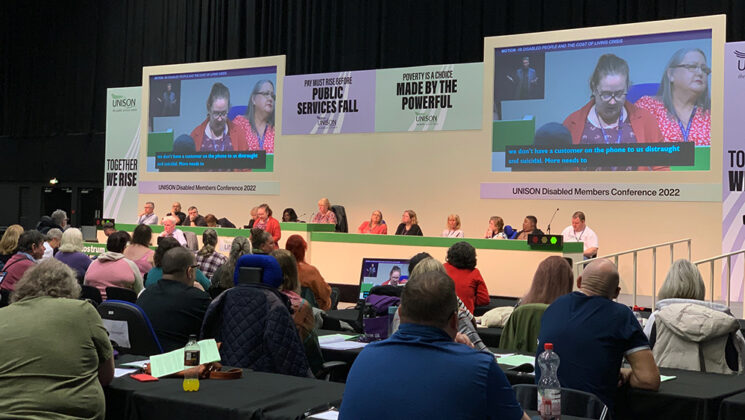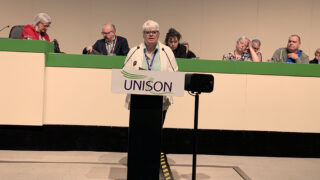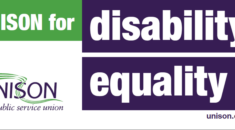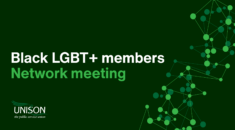A busy afternoon at UNISON’s disabled members’ conference today (Sunday) was dominated by a harrowing debate on men and mental health, which heard testimony from delegates about their personal experiences of male friends or relatives who had taken their own lives.
In 2020, 75% of those who took their own lives in the UK were male, with 4,880 men and boys ending their lives – equating to 12 deaths every day of the year.
While people of all genders experience mental health problems, gender stereotypes mean that men’s mental health problems often go unnoticed.
An incredibly moving speech from one delegate, whose own son had ended his life, was followed by another, by a member who works in mental health in the North West and spoke of spending his working days stopping patients trying to end their lives.
“This is real,” he said: “This is massive, because guys won’t say nothing”.
That was a recurring theme – of men who are told to ‘man up’, who have been taught that showing emotion is weak and that talking about how they feel is as bad.
One delegate talked of how her nephew ended his own life and, now, his son constantly asks: “Why did he do it when he was loved?” She added: “I can’t answer, because I don’t know”.
Another delegate told of his own suicide attempt, after an upbringing that never allowed men to talk or acknowledge emotions. He is now involved in Men do Talk, a campaign in Scotland that encourages men to open up.
Once again, the lack of communication for Deaf people was highlighted, as it makes it harder for those who have suicidal thoughts to access help.
Conference voted to call on the national committee to:
- develop a campaign to raise awareness of male mental health;
- consider whether the safe place referred to in a motion to June’s national delegate conference could be extended to include a safe space where men can share and discuss their experiences of mental health;
- provide details of appropriate sources of help via the UNISON website.
If you are struggling, the Samaritans are available to listen, 24/7, every day of the year
‘Removal of rights bill’
Conference also passed a motion from the disabled LGBT+ caucus, which called for the national committee to raise awareness of the Conservative government’s declared intention of replacing the 1988 Human Rights Act with a bill of rights, which the union calls the ‘Removal of Rights Bill’.
Carl, for the caucus, said that disabled and LGBT+ people rely heavily on the protections of the Human Rights Act. “Many disabled people have to use [its] articles in the courts to access public services to live independently.” The proposed bill could see rights removed rather than improved, he said.
“We need to be monitoring what’s going on – we have a fight on our hands to protect out rights.”










